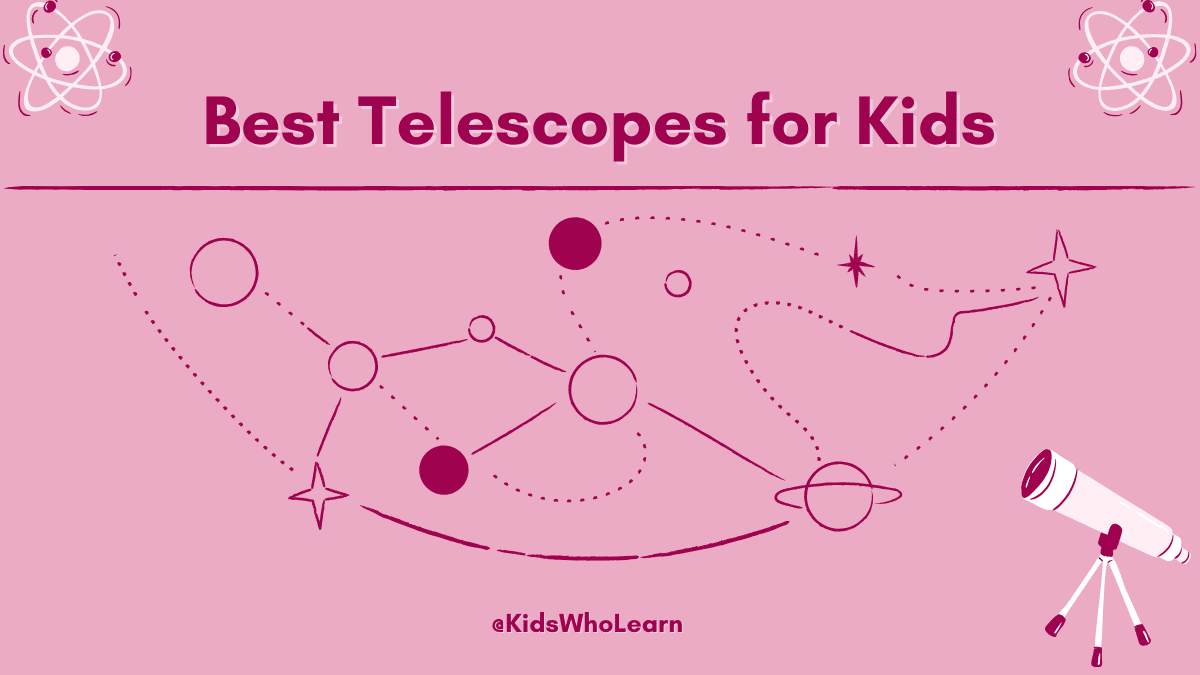Why homeschool? The decision to homeschool is a significant one for any family. It involves a multitude of factors to consider, such as the individual needs of the child and the family’s lifestyle. Homeschooling can provide personalized education that caters to the learning pace and style of each child. It grants families the flexibility to incorporate their values and beliefs into the curriculum, fostering a deeper connection and understanding of the world around them.
Homeschooling also offers the opportunity for parents to be more involved in their child’s education, allowing for a strong bond to be formed between parent and child. Families can determine the educational experience that best suits their children, whether that includes travel, field trips, or hands-on learning projects. It can be an exciting and highly rewarding journey for both parents and children.
Key Takeaways
- Homeschooling allows for personalized education tailored to each child’s needs
- It provides flexibility in incorporating family values and beliefs into the curriculum
- Parents who homeschool can enhance their bond with their children and actively participate in their education
Why Homeschool?
Personalized Learning Pace
When you homeschool your children, you can easily adjust the learning pace to suit their individual needs. No two children learn exactly the same way, and homeschooling allows you to personalize their education to ensure they truly understand each concept before moving on to the next. You can also spend more time on topics they’re passionate about or need more help with, fostering a love for learning without leaving them feeling overwhelmed or bored.
Flexible Schedule
Homeschooling offers flexibility to fit your family’s unique lifestyle and needs. You’re not restricted by the traditional school timetable or calendar. This means you can plan educational activities and lessons around your work schedule, family commitments, or even vacations. Your kids will also benefit from the opportunity to develop a healthy work-life balance early in life, which is an invaluable skill for their future.
Safe Learning Environment
With homeschooling, you can create and maintain a safe and supportive learning environment for your children. This allows them to focus on their education without the added stress of school-related issues such as bullying or peer pressure. As a result, you can help build their self-confidence and encourage them to develop essential social skills in a more nurturing and controlled setting.
Factors to Consider When Homeschooling
Taking on the Teacher’s Role
When deciding to homeschool, consider the responsibilities you will take on as the primary educator. It’s crucial to be prepared for the time commitment, dedication, and patience needed to teach your child effectively. Assess your ability to provide a well-rounded education, including core subjects, extracurricular activities, and life skills. Don’t forget that, as the teacher, you will also need to keep up-to-date with educational standards, curriculum development, and assessment methods.
Social Interaction Opportunities
One common concern when homeschooling is providing enough social interaction opportunities for your child. While homeschooling allows for personalized learning, it’s essential to foster connections with others that promote social development. Research and connect with local homeschooling groups and co-ops to ensure your child has a chance to interact with their peers. You can also encourage your child to participate in community activities, such as sports teams, clubs, and even volunteer work.
Cost of Homeschooling
Homeschooling can come with its expenses, so it’s essential to create a budget for your homeschooling journey. Some common costs include:
- Curriculum materials: textbooks, online courses, workbooks, etc.
- Extracurricular activities: sports, clubs, music lessons, etc.
- Educational resources: art supplies, science equipment, technology, etc.
Keep in mind that homeschooling can be flexible, and there are often free or low-cost resources available, such as online public schools, free educational websites, and libraries.
Remember to consider these factors when deciding to homeschool your child, as they will directly impact both you and your child’s experience. With careful planning and assessment, homeschooling can be a rewarding journey for your family.
Advantages of Homeschooling
Academic Flexibility
Homeschooling allows you to create a tailor-made education plan that suits your child’s unique learning abilities and interests. You can focus on their strengths, work on overcoming their weaknesses, and incorporate different learning styles. Unlike traditional schooling, you have the freedom to pace lessons according to your child’s needs, allowing them to progress at their own pace and ensuring a better understanding of the material.
Stronger Family Bonding
When you homeschool, you spend quality time together as a family, fostering a strong bond between you and your children. You become your child’s primary teacher, mentor, and guide, which can lead to a deeper understanding of each other. This shared time helps create a strong support system for the child, giving them the confidence to navigate through their educational journey and life.
Influence on Values and Beliefs
Homeschooling allows you to pass on your values and beliefs to your children without feeling like you’re competing with outside influences. You can create an environment that aligns with your family’s principles, incorporating lessons that reflect your morals and faith. This personalized touch helps you instill a strong sense of identity and conviction in your child, fostering emotional growth and self-assurance.
Potential Downside of Homeschooling
Time Intensive
Homeschooling can be a time-consuming process for you as a parent. It often requires long hours of planning, preparing, and teaching lessons for your child. Additionally, it’s essential for you to stay informed about the educational requirements in your area and continuously update your knowledge and teaching methods. Balancing other responsibilities like work or household chores can become challenging while catering to your child’s educational needs.
Parents’ Educational Skills
While homeschooling, your abilities and expertise as an educator play a critical role in your child’s learning progress. You may lack proficiency in particular subjects, making it difficult to teach them effectively. Consistently improving your teaching skills, staying up to date with subject matter, and ensuring that your child receives a well-rounded education can be quite demanding.
Lack of Extracurricular Activities
Extracurricular activities play a significant role in a child’s overall development. In a traditional school setting, students have easy access to various sports, clubs, and organized activities. However, when homeschooling, it can be challenging to provide similar opportunities. This may require extra effort from you, such as seeking out local groups or organizing events where your child can interact with other homeschool students and participate in activities outside of academics.
Conclusion
In the end, it’s clear that homeschooling has its advantages. As a parent, you have the freedom to personalize your child’s education, ensuring they learn at their own pace and establish a strong foundation for future success. Homeschooling also provides a safe, nurturing environment for learning, free from the potential distractions and negative influences of traditional schooling.
Making the decision to homeschool is undoubtedly a big one, but don’t be afraid to explore your options and trust your instincts. By putting in the time and effort to develop a well-rounded homeschooling plan, you’ll be creating an educational experience that caters specifically to your child’s unique needs and interests. So go ahead and embrace the opportunity to help shape a brighter future for your child, and enjoy the journey of learning together.
Frequently Asked Questions
What are the main benefits of homeschooling?
Homeschooling offers numerous benefits to you and your child. You can create a customized curriculum tailored to your child’s interests and learning abilities, allowing them to learn at their own pace. Flexibility in scheduling means you can accommodate your family’s lifestyle, and there is more one-on-one time between you and your child, which strengthens your bond and enhances their education.
How does homeschooling affect mental health?
Homeschooling can have positive effects on mental health, as it may reduce stress related to peer pressure, social anxiety, and bullying often encountered in traditional school settings. However, it can also be challenging as children will need to work on their time management skills and develop self-discipline. For best results, be sure to offer your child support and maintain open communication about their feelings.
Can homeschooling be more affordable than traditional schooling?
Homeschooling can potentially be more affordable than traditional schooling, depending on your choices. You have control over your educational materials, which means you can choose cost-effective options and even find free online resources. Additionally, you save on transportation, lunch fees, and other school-related expenses. However, costs can add up if you opt for private tutors, specialized resources, and extracurricular activities.
What social advantages does homeschooling offer?
With homeschooling, you have the opportunity to build strong family connections and create more individualized social experiences for your child. They can attend clubs, sports activities, and community events that match their interests, enabling them to establish meaningful relationships with a diverse group of people. Plus, you can reinforce positive social interactions and values.
Why are some homeschooled students more successful?
Success in homeschooling comes from the personalized learning environment and the strong parent-child bond. Customized learning allows your child to focus on their strengths and work on areas for improvement, leading to academic progress. The one-on-one attention helps develop a love for learning, driving your child to be more curious and self-motivated in their education journey.
What are the pros and cons of homeschooling versus traditional schooling?
Pros of homeschooling include:
- A personalized curriculum tailored to your child’s needs
- Flexibility in scheduling
- Stronger family bonds
- Limited exposure to bullying and negative peer pressure
- Control over educational resources
Cons of homeschooling include:
- Time-consuming for parents
- Potential socialization challenges
- Responsibility for providing a comprehensive education
- Possible lack of access to specialized resources and extracurricular activities
- Limited opportunities for group experiences and team-building







